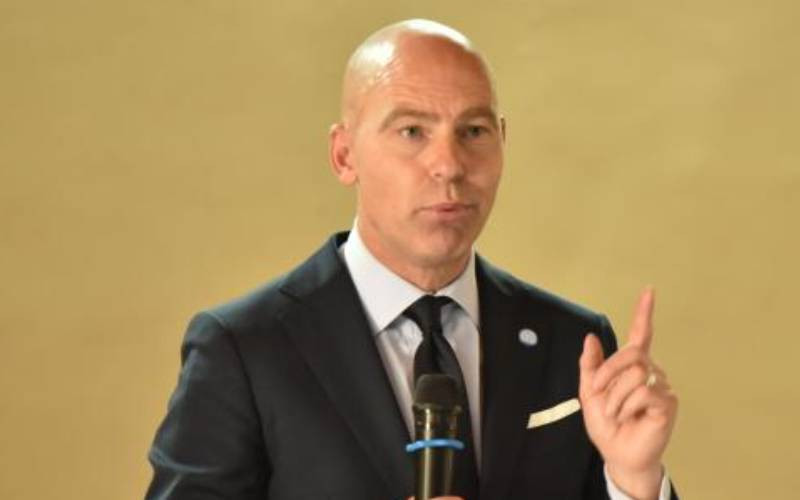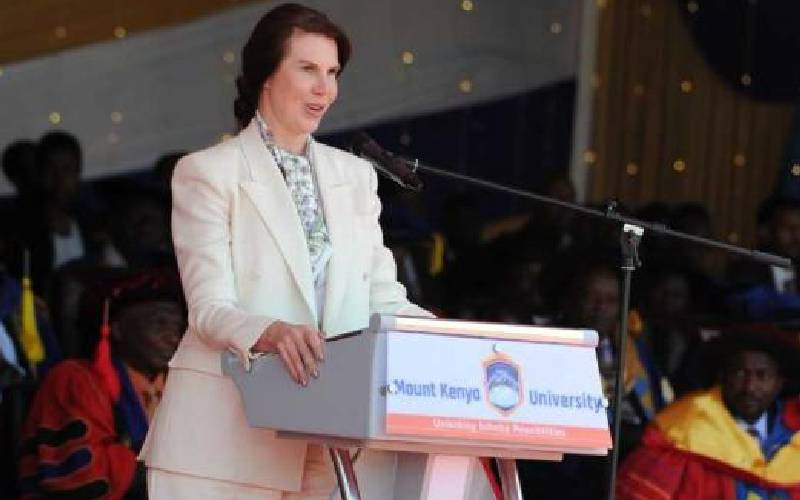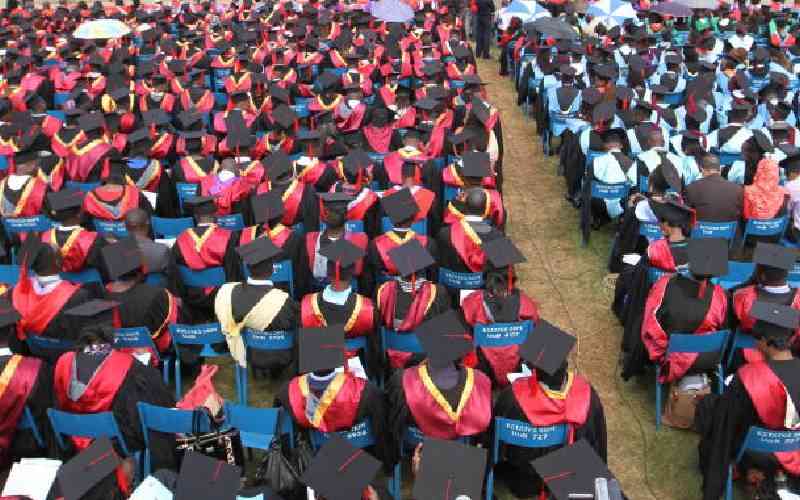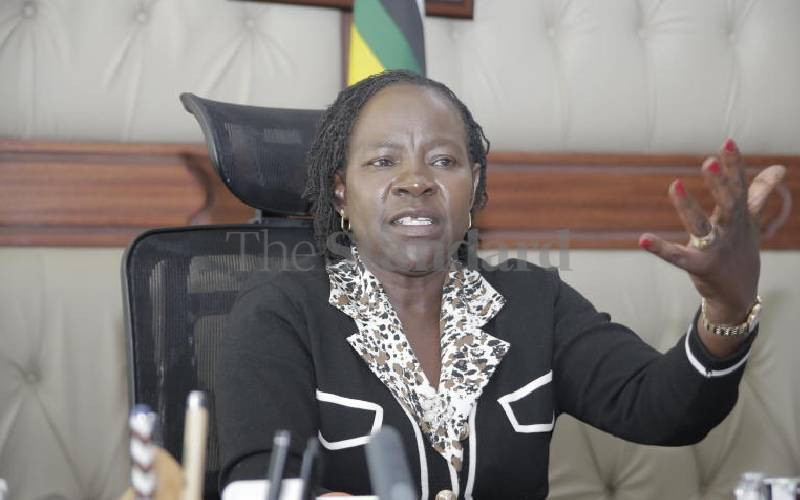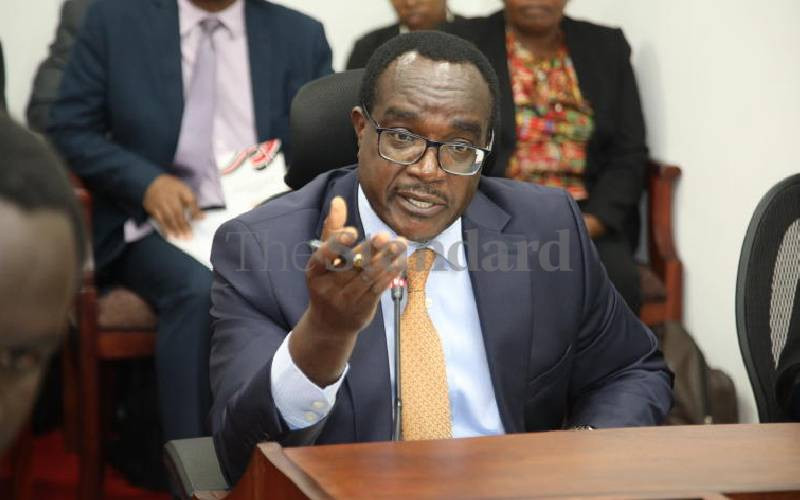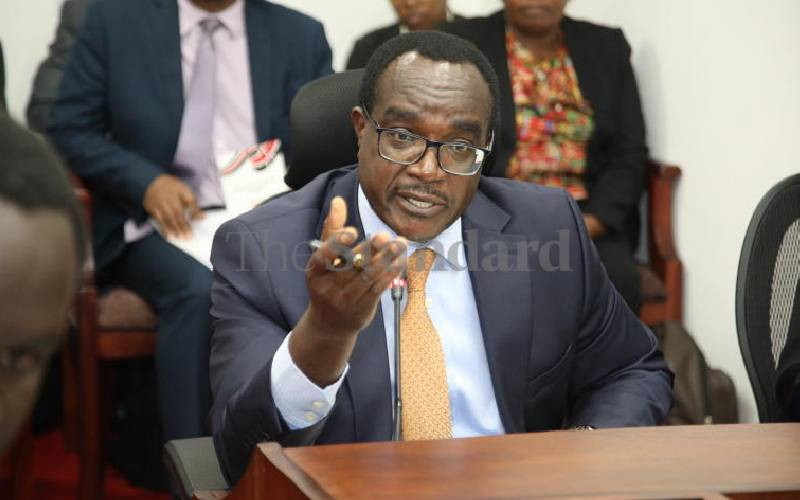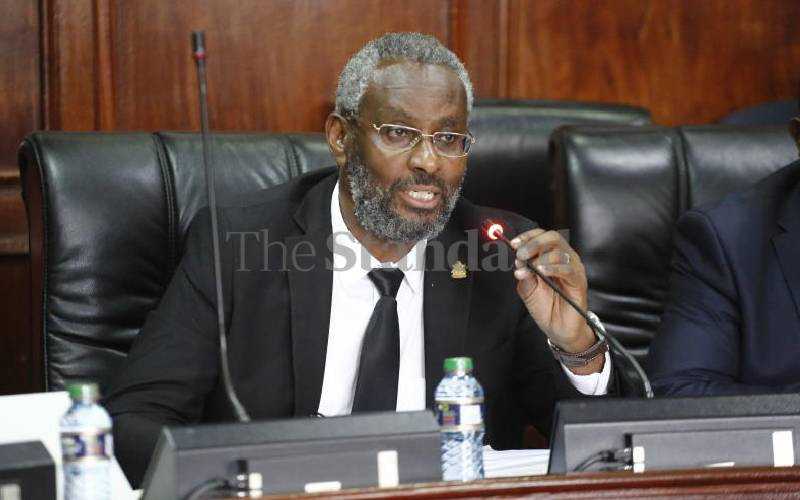
Private universities now want the government to determine the availability of funds to support students' university education before the selection and placement of students is done.
They also want the establishment and operationalisation of a National Open University of Kenya in the wake of technological advancement and automation.
In their presentation to the Presidential Working Party on Education Reforms sitting at Chania High School in Kiambu, private universities also proposed that Junior Secondary be retained in Primary Schools.
They argued that this would ease the transition, give all learners equal opportunities and forestall crisis in the sector.
On university placement and funding, the National Association of Private Universities in Kenya (NAPUK) argued that the current system of placing students to universities and colleges had led to a funding crisis.
They now contend that the Universities Fund, having determined the funds available to support State-sponsored learners, should advise the placement agency on the number of students to select and place.
NAPUK argued that presently, the Kenya Universities and Colleges Central Placement Service (KUCCPS) selects and places students to universities and colleges before the amount of money available is determined.
"This has contributed to the present crisis where institutions are struggling to stay afloat because the government is unable to release adequate funds," said NAPUK Secretary General Dr Vincent Gaitho.
Section 56 (1)(a) of the Universities Act, 2012, says that KUCCPS shall co-ordinate the placement of government-sponsored students to universities and colleges.
The Act also says under section 54 (4) (c), says that the Universities Fund shall apportion funds to public universities and issue conditional grants to private universities in accordance with established criteria.
However, private universities now argue that placement of students must not take place before the Universities Funding Board determines the amount of money available, and releases clear criteria for funding.
They propose that placement of students to universities should be advised by available funds and the differentiated unit cost (DUC) as determined by the Universities Funding Board before placement is done.
Dr Gaitho said a deliberate evaluation of how the placement of students by KUCCPS was conceptualised should be conducted, as well as criteria developed to identify deserving students who would be sponsored by the government.
"The government sponsorship for university education should be formulated on the basis of deserving cases, affirmative action and in support of the government's national development goals," said Dr Gaitho.
"The best business practices and entrepreneurial skills (should) be included in university education funding, where the available budget is determinant of fund sharing and students' placement," he added.
Private universities argued that presently, there is no framework for determining deserving students for university education funding.
"There is glaring discrimination in the implementation of the DUC by the Universities Funding Board where government-sponsored students in private universities receive less than half of what those in public universities get," said Dr Gaitho.
NAPUK also wants a review of the governance structures of universities to determine how they impact in the appropriation of financial resources.
"Universities must explore varied funding sources. Prudent management of all university funds be observed and activities and projects initiated must be tied to the goal and purpose of the university," said Dr Gaitho.
NAPUK has also asked the Prof Raphael Munavu-led team to consider the introduction and operationalisation of a National Open University of Kenya in the wake of technological advancement and automation.
"The advent of the Covid-19 pandemic triggered an unprecedented way of doing business and living, making the dichotomy of time and space insignificant. Universities worldwide and in Kenya rolled out the use of technology where online teaching, learning, examination and graduation were seamlessly conducted," said Dr Gaitho.
NAPUK highlighted an urgent need for the government, through the ICT ministry, to uncover the hindrances that negate access to stable and affordable access to online connectivity.
"The line ministry for digitisation ought to support and implement nationwide internet connectivity. The counties should equally roll out internet connectivity with free WiFi hotspots in appropriate sites and open public parks to assist students pursuing online academic programmes countrywide," Dr Gaitho told the task force.
NAPUK also weighed in on the placement of Junior Secondary schools, proposing that the level of learning be domiciled in primary schools once it is rolled out in January 2023.
Dr Gaitho said it is doubtful the available facilities will accommodate learners, given the 100 per cent transition of Class Eight pupils to Form One that began four years ago.
 The Standard Group Plc is a multi-media organization with investments in media platforms spanning newspaper print
operations, television, radio broadcasting, digital and online services. The Standard Group is recognized as a
leading multi-media house in Kenya with a key influence in matters of national and international interest.
The Standard Group Plc is a multi-media organization with investments in media platforms spanning newspaper print
operations, television, radio broadcasting, digital and online services. The Standard Group is recognized as a
leading multi-media house in Kenya with a key influence in matters of national and international interest.

